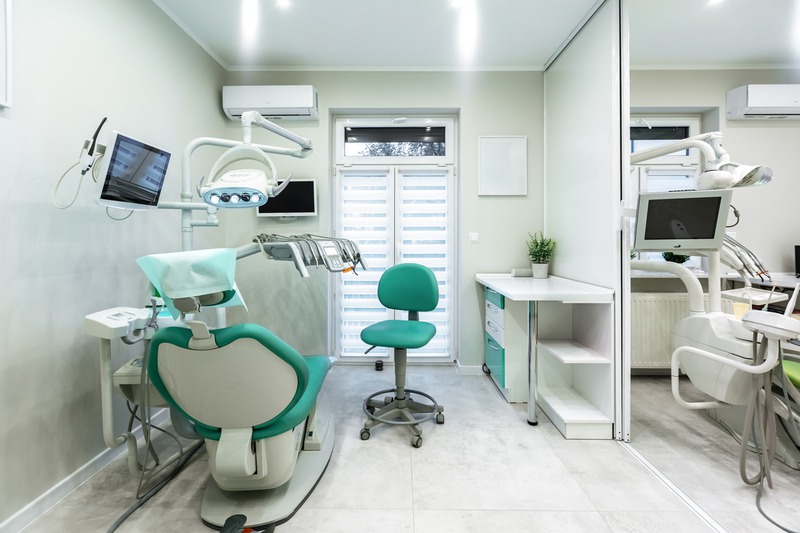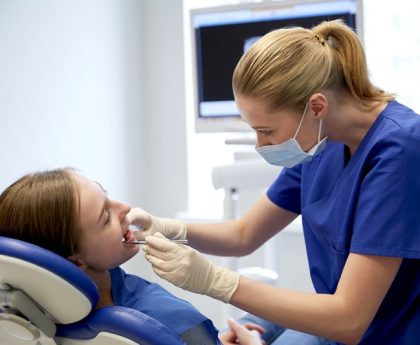Good dental health helps you feel confident and avoids tooth pain or dental issues. Caring for your teeth at home regularly is key to keeping your smile bright and healthy. With the right practices and dedication, maintaining a clean mouth and fresh breath becomes easy and manageable.
Ways to Improve Dental Health at Home
Brushing your teeth twice daily removes plaque and protects your gums. Use fluoride toothpaste and a soft-bristled toothbrush, moving gently in circles along your teeth surfaces. Avoid brushing too hard, as this can damage your gums and tooth enamel over time.
Replace your toothbrush every three to four months or sooner if the bristles become frayed. Keep your toothbrush clean by rinsing it thoroughly after each use. Do not cover or store brushes in closed containers to prevent bacterial growth.
Floss Daily for Cleaner Teeth
Flossing once per day helps remove stuck food particles between teeth where your toothbrush can’t reach. Proper flossing keeps gums healthy and prevents periodontal disease. Choose dental floss or interdental cleaning tools suitable for your teeth spacing and comfort.
Gently slide floss between teeth and form a “C” shape around each tooth, moving carefully to avoid cutting your gums. Be thorough and spend time flossing all sides and corners. Making flossing a daily habit is beneficial for long-term dental health.
Use Mouthwash to Enhance Oral Hygiene
Mouthwash freshens breath and kills bacteria inside your mouth. Incorporating mouthwash into your daily routine provides extra protection against plaque buildup and infections. Opt for antibacterial or fluoride-enriched mouth rinse products to gain maximum benefits.
Avoid mouthwash containing alcohol, as it can irritate and dry out oral tissues. Rinse your mouth for around 30 seconds each time to effectively reduce bacteria. Regularly using mouthwash improves oral hygiene significantly.
Maintain a Balanced and Healthy Diet
Eating nutritious foods promotes healthier teeth and gums. Consume foods rich in calcium and vitamins that strengthen teeth, such as dairy products, leafy greens, fruits, and vegetables. Limit sugary snacks and beverages, which increase tooth decay risks.
Drink plenty of water to wash away food particles and neutralize mouth acidity. Chewing crunchy fruits and vegetables helps stimulate saliva production, naturally cleansing your mouth. Proper nutrition positively impacts your overall dental health.
Avoid Harmful Habits Damaging Your Teeth
Certain habits negatively affect teeth and oral tissues. Smoking or chewing tobacco significantly increases the risks of gum disease and oral cancer. Quitting tobacco products is necessary for healthier gums and fresh breath.
Refrain from excessive alcohol consumption, as it reduces saliva production. Avoid grinding or clenching your teeth, which wears down enamel and causes jaw discomfort. Be cautious with hard foods and ice chewing to prevent tooth cracks or chips.
Importance of Regular Hydration
Water benefits your oral health immensely by washing away debris and promoting saliva production, essential for remineralizing teeth and controlling bacteria. Staying adequately hydrated reduces bad breath and maintains cleaner, healthier teeth.
Drink water following sugary or acidic food consumption to neutralize acids in your mouth. Keep a water bottle nearby to encourage frequent hydration throughout the day. Regular water intake is simple yet effective in preserving strong teeth and good oral hygiene.
Develop a Consistent Oral Care Routine
A structured daily oral care routine is necessary for optimal dental health. Establish a habit of brushing, flossing, and rinsing at consistent times every day. Consistency and diligence in your oral hygiene practices yield better dental check-ups and healthier teeth.
Make your oral care routine enjoyable with pleasant toothpaste flavors or convenient devices. Keeping necessary supplies accessible at home or the workplace supports sustained oral care habits. A regular oral routine ensures sustained benefits. Remember, a healthy smile is good for health, contributing positively to both your dental well-being and overall confidence.
Selecting Reliable Local Dental Care Providers
Choosing trusted dental care professionals in your community ensures quality oral health treatments and advice. Reliable dental practices near you, such as reputable providers like Crossroads Dental Arts, make accessing regular dental care easier and more convenient. Local dentists provide personalized recommendations based on your specific oral health needs.
Research ratings, reviews, and recommendations when selecting local dental services. Choose experienced dentists who communicate well and make you feel comfortable and informed. Working closely with skilled dental professionals keeps your oral health maintained optimally.
Simple Techniques to Prevent Bad Breath
Bad breath is an issue faced by many people, affecting their confidence and interactions. Practicing good oral hygiene, a fundamental aspect of general dentistry in Owings Mills, helps combat foul odors. Brush your tongue gently when brushing teeth to eliminate bacteria causing unpleasant breath.
-
Avoid strongly flavored foods or beverages like garlic, onions, coffee, or alcohol, which temporarily cause bad breath.
-
Rinse your mouth with water regularly or chew sugar-free gum to stimulate saliva and freshen breath between meals.
-
Stay hydrated and maintain a balanced diet to reduce the risk of chronic bad breath effectively.
Warning Signs Indicating Oral Health Issues
Being alert to symptoms suggesting oral problems helps detect arising issues promptly. Regularly inspect your mouth visually and note any abnormal changes or sensations experienced. Promptly addressing them avoids further complications or worsening conditions.
-
Persistent toothaches or sensitivity despite regular oral care efforts might indicate cavities or infection.
-
Bleeding gums suggest early signs of gum disease requiring dentist evaluation.
-
Sores or lumps inside your mouth that do not heal might signal more serious concerns.
Painful chewing, temperature sensitivity, mouth dryness, loose teeth, or noticeable discoloration warrant professional attention immediately. Acting quickly to address these symptoms resolves problems swiftly through early intervention treatments.
Final Thoughts
Improving dental health from home involves practices including thorough brushing, flossing, mouthwash rinsing, dietary care, and regular hydration. Staying consistent prevents common oral health problems and enhances your overall well-being. Always schedule regular professional dental check-ups to complement your effective home oral care habits for lasting dental health and a brighter smile.





